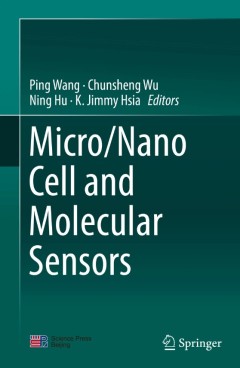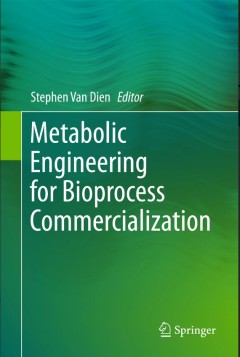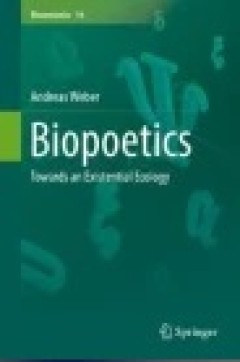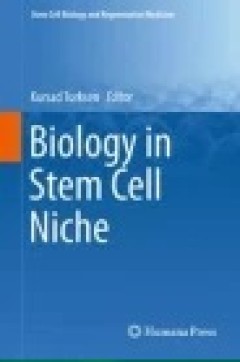Filter by

Campylobacter spp. and Related Organisms in Poultry : Pathogen-Host Interacti…
This book provides an extensive review of research into Campylobacter, Helicobacter and Arcobacter species found in poultry. It includes the epidemiology, diagnosis, immune response and disease control of these organisms in commercial poultry production. Antimicrobial resistance, and the incidence and human disease potential of these bacteria is also discussed. A global perspective is presen…
- Edition
- -
- ISBN/ISSN
- 978-3-319-29907-5
- Collation
- -
- Series Title
- -
- Call Number
- 616.01

Integrating Emotions and Cognition Throughout the Lifespan
This book synthesizes the literature on emotional development and cognition across the lifespan. The book proposes a core language by which to describe positive and problematic developmental changes by recourse to a parsimonious set of core principles, such as elevations or declines in tension thresholds and their relation to the waxing and waning of the cognitive system over the life course. I…
- Edition
- -
- ISBN/ISSN
- 978-3-319-09822-7
- Collation
- -
- Series Title
- -
- Call Number
- -

Micro/Nano Cell and Molecular Sensor
This book focuses on cell- and molecule-based biosensors using micro/nano devices as transducers. After providing basic information on micro/nano cell- and molecule-based biosensors, it introduces readers to the basic structures and properties of micro/nano materials and their applications. The topics covered provide a comprehensive review of the current state of the art in micro/nano cell- and…
- Edition
- 1
- ISBN/ISSN
- 978-981-10-1656-1
- Collation
- V, 243
- Series Title
- -
- Call Number
- -

Bone and Cartilage Regeneration
This invaluable resource discusses clinical applications with effects and side-effects of applications of stem cells in bone and cartilage regeneration. Each chapter is contributed by a pre-eminent scientist in the field and covers such topics as skeletal regeneration by mesenchymal stem cells, clinical improvement of mesenchymal stem cell injection in injured cartilage and osteoarthritis, Good…
- Edition
- -
- ISBN/ISSN
- -
- Collation
- -
- Series Title
- -
- Call Number
- 611

Metabolic Engineering for Bioprocess Commercialization
This volume reviews the current metabolic engineering tools and technologies from a practical point of view, and guides researchers as they overcome challenges at various stages of organism and bioprocess development. Microbes have been engineered to produce a variety of industrial products such as fuels, basic chemicals, fine chemicals, nutritional supplements, and pharmaceutical intermediates…
- Edition
- 1
- ISBN/ISSN
- 978-3-319-41964-0
- Collation
- V, 122
- Series Title
- -
- Call Number
- -

Fear and Anxiety in Virtual Reality Investigations of cue and context condit…
Virtual realities provide an outstanding tool in anxiety research. A fear conditioning study investigates and illustrates the development of anxiety disorders in humans. Hannah Genheimer describes the scientific background of fear and anxiety and presents an empirical study in a highly controlled virtual environment. Psychophysiological as well as subjective data on the participants’ fear and…
- Edition
- -
- ISBN/ISSN
- 978-3-658-08203-1
- Collation
- X, 79
- Series Title
- -
- Call Number
- -

Biosynthesis and Molecular Genetics of Fungal Secondary Metabolites, Volume 2
Fungi produce many chemically diverse secondary metabolites whose biological roles largely remain elusive. Within the increasing number of sequenced fungal genomes several important genes involved in secondary metabolite formation have been identified. Most of these genes are clustered and their coordinated transcription is controlled in a complex way by both narrow pathway-specific regulators …
- Edition
- -
- ISBN/ISSN
- 978-1-4939-2531-5
- Collation
- -
- Series Title
- -
- Call Number
- 611

Biopoetics : Towards an Existential Ecology
Meaning, feeling and expression – the experience of inwardness – matter most in human existence. The perspective of biopoetics shows that this experience is shared by all organisms. Being alive means to exist through relations that have existential concern, and to express these dimensions through the body and its gestures. All life takes place within one poetic space which is shared between…
- Edition
- -
- ISBN/ISSN
- 978-94-024-0832-4
- Collation
- -
- Series Title
- -
- Call Number
- 570

Biomass and Biofuels from Microalgae
This comprehensive book details the most recent advances in the microalgae biological sciences and engineering technologies for biomass and biofuel production in order to meet the ongoing need for new and affordable sources of food, chemicals and energy for future generations. The chapters explore new microalgae cultivation techniques, including solid (biofilm) systems, and heterotrophic produc…
- Edition
- -
- ISBN/ISSN
- 978-3-319-16640-7
- Collation
- -
- Series Title
- -
- Call Number
- 579

Biology in Stem Cell Niche
This comprehensive volume explores functions, pathologies, and applications of stem cells in relation to the niches in which they develop. Ten chapters cover the subject in depth, from a historical perspective through signaling, hormonal control, quiescence, biomimetics, epigenetics, engineering strategies for emulating, tumorigenesis and more. The chapter authors represent a broad range of int…
- Edition
- -
- ISBN/ISSN
- -
- Collation
- -
- Series Title
- -
- Call Number
- 611
 Computer Science, Information & General Works
Computer Science, Information & General Works  Philosophy & Psychology
Philosophy & Psychology  Religion
Religion  Social Sciences
Social Sciences  Language
Language  Pure Science
Pure Science  Applied Sciences
Applied Sciences  Art & Recreation
Art & Recreation  Literature
Literature  History & Geography
History & Geography